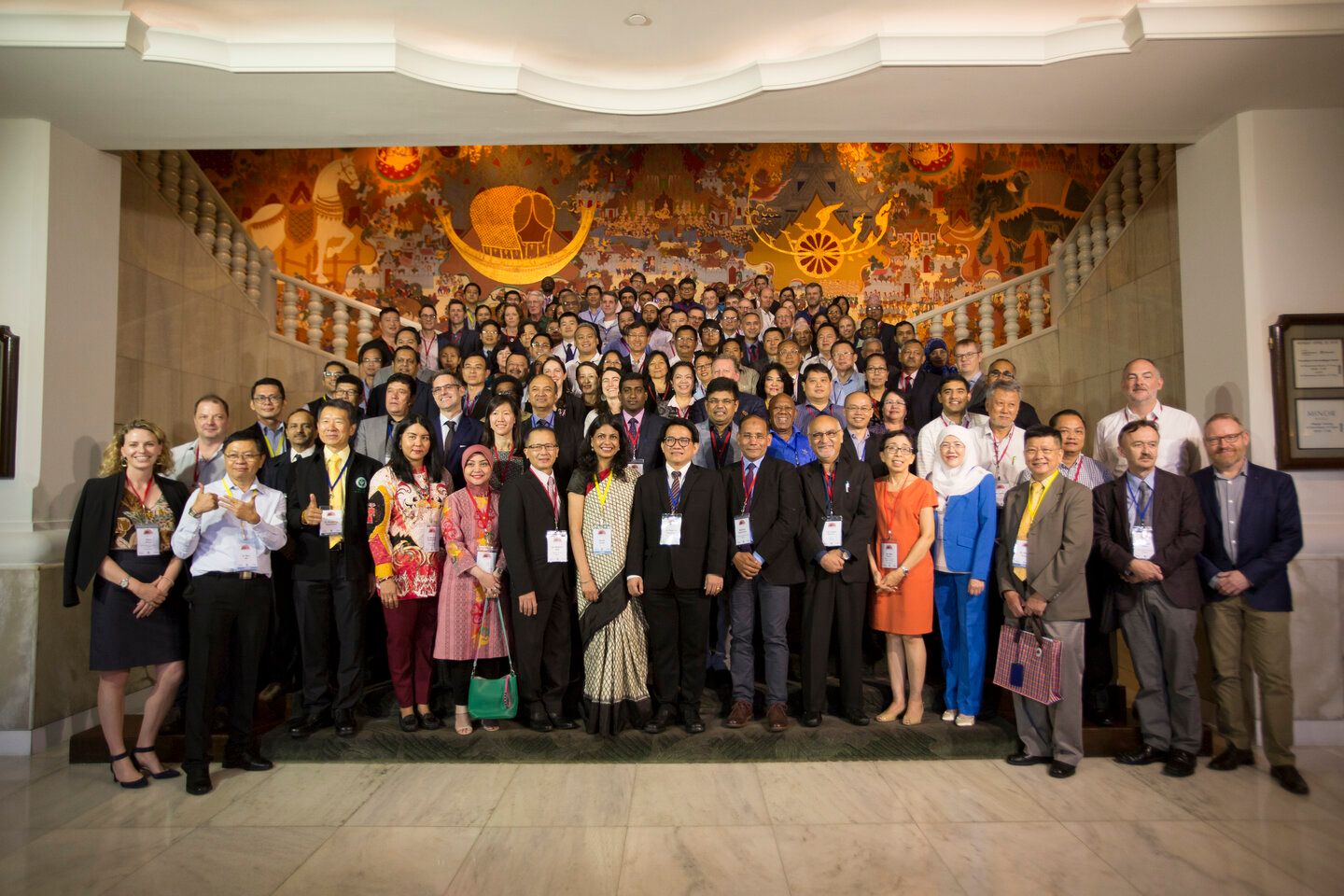
The Asia Pacific Leaders Malaria Alliance (APLMA) and Asia Pacific Malaria Elimination Network (APMEN) work in an integrated manner to ensure the Asia-Pacific region’s progress towards eliminating malaria by 2030 remains on track, with APLMA facilitating policy leadership and access to essential elimination resources and commodities while APMEN identifying and addressing programmatic needs, generating evidence, building capacity, and supporting national malaria programs.
Combining Health Diplomacy and Science to Defeat the Region's Oldest Enemy
Progress against malaria is one of this century’s greatest public health successes. Over the past ten years, the countries of the Asia-Pacific region have reduced cases of malaria by more than half, putting them on a positive course towards the 2030 goal. But 2.5 billion people in the region remain at risk. In some areas, malaria is staging a comeback-aided now by the Covid-19 pandemic, which is diverting attention and resources. It is imperative that these threats get urgent attention and that the region’s gains aren’t wasted. APLMA and APMEN support the region’s collective malaria response by guiding the implementation of the APLMA Leaders' Malaria Elimination Roadmap – which prioritizes research and innovation, financing and governance, policy and program coordination, and regulatory cooperation for the malaria response.
With a joint secretariat headquartered in the regional hub of Singapore to facilitate cross-border collaboration, APLMA and APMEN support government efforts to eliminate malaria across the region by mobilizing innovations and tailored solutions across our stakeholders. We place particular focus on the region’s most vulnerable communities, where the burden is the highest and the need to redress malaria progress is the greatest. Doing so helps strengthen health systems in those communities and across the region to beat malaria today—and other communicable diseases in the future. Together, APLMA and APMEN stand committed to making the preventable burden of malaria a thing of the past. Now is the time to complete what we started.
